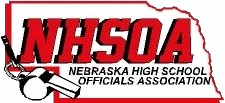After the season finishes, I usually have a small break both mentally and physically. I try to stay away for a while to recharge my batteries after the long series of games.
But then, I think the best thing I can do is to go to a summer camp! Why do I think it’s good to go to a camp? Here are my 5 best reasons.
LEARN ABOUT NEW TRENDS IN OFFICIATING Officiating, like any sports, is a highly competitive and changing area, where new perspectives and new trends arise from time to time. If you want to keep on improving to become a top referee, you want to know these new trends on time, so you can be an early adopter. Also, you can help others by telling them about these new directions.
MEET A LOT OF GREAT PEOPLE Usually, there are a lot of like-minded people who gather in a camp. Maybe you will become referees together, or you will just meet some day. Either way, you will benefit from having good memories together already. You can also learn how to socialize in these events, so you can develop yourself in this area that is crucial if you want to become a top referee some day, or just want to stay on the top.
YOU CAN NETWORK If you go to a camp, where prominent leaders of the officiating world can see you, you can harvest the greatest benefits one can get from a summer camp. Important people can meet you and see how you officiate. You have the chance to introduce yourself. It will count when it’s the most important.
VISIT A NICE PLACE You can go to a nice place, visit nice gyms, drink coffee in the morning sun with smiling faces. It is a vacation with a great benefit: you will be a better referee at the same time.
GET EXTREMELY VALUABLE FEEDBACK Sometimes it’s not easy to see ourselves as we really are, and if you are an open person, you always look for valuable feedback from people you can trust. You can build upon these words later, and you can make a giant step towards being a top referee in each summer camp.
Big names from the referee world will give you feedback about every minute of your officiating by studying the tape together, which is invaluable for every referee who wants to improve.
You can only win if you go, and you definitely lose a lot of opportunities if you miss out!
But then, I think the best thing I can do is to go to a summer camp! Why do I think it’s good to go to a camp? Here are my 5 best reasons.
LEARN ABOUT NEW TRENDS IN OFFICIATING Officiating, like any sports, is a highly competitive and changing area, where new perspectives and new trends arise from time to time. If you want to keep on improving to become a top referee, you want to know these new trends on time, so you can be an early adopter. Also, you can help others by telling them about these new directions.
MEET A LOT OF GREAT PEOPLE Usually, there are a lot of like-minded people who gather in a camp. Maybe you will become referees together, or you will just meet some day. Either way, you will benefit from having good memories together already. You can also learn how to socialize in these events, so you can develop yourself in this area that is crucial if you want to become a top referee some day, or just want to stay on the top.
YOU CAN NETWORK If you go to a camp, where prominent leaders of the officiating world can see you, you can harvest the greatest benefits one can get from a summer camp. Important people can meet you and see how you officiate. You have the chance to introduce yourself. It will count when it’s the most important.
VISIT A NICE PLACE You can go to a nice place, visit nice gyms, drink coffee in the morning sun with smiling faces. It is a vacation with a great benefit: you will be a better referee at the same time.
GET EXTREMELY VALUABLE FEEDBACK Sometimes it’s not easy to see ourselves as we really are, and if you are an open person, you always look for valuable feedback from people you can trust. You can build upon these words later, and you can make a giant step towards being a top referee in each summer camp.
Big names from the referee world will give you feedback about every minute of your officiating by studying the tape together, which is invaluable for every referee who wants to improve.
You can only win if you go, and you definitely lose a lot of opportunities if you miss out!

 RSS Feed
RSS Feed